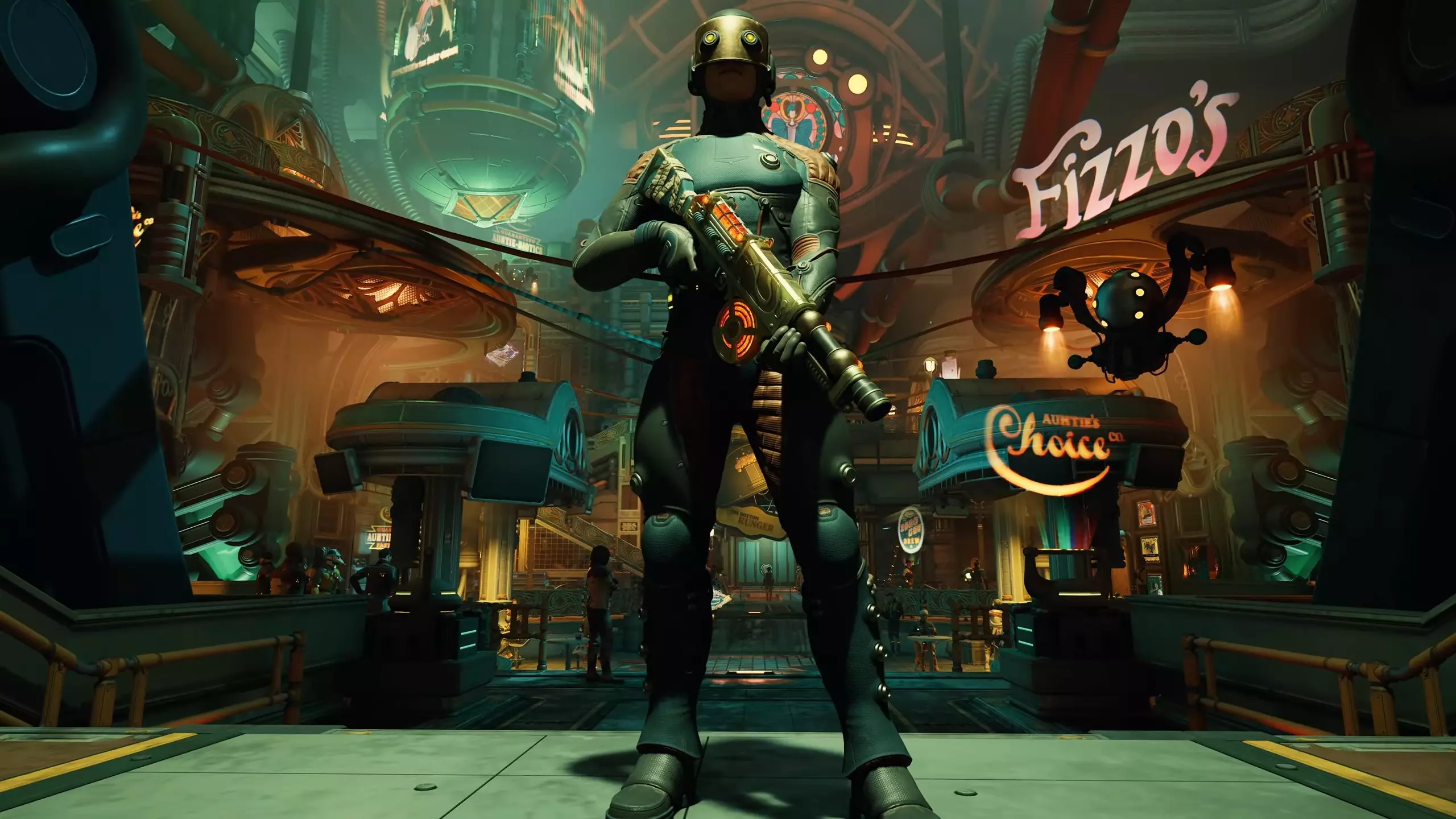In an industry swirling with a hunger for universal appeal, Obsidian Entertainment’s upcoming title, *The Outer Worlds 2*, is charting a provocative course that puts niche gameplay at the forefront. Game director Brandon Adler, a figure with significant pedigree from titles like *Fallout: New Vegas* and *Pillars of Eternity*, asserts that crafting an experience with depth and meaningful choices is the essence of this RPG. Rather than succumbing to a trend of catering to every gamer’s whim, Adler believes in focusing on a dedicated audience that craves genuine role-playing nuances.
The heart of Adler’s vision lies in the unique attributes of *The Outer Worlds 2*, particularly its inventive perk system. This system allows players to create audacious combinations, encouraging creativity and strategic planning without offering an option to respec. While many titles have embraced the mechanic of allowing players to tweak their builds endlessly, Adler and his team have made a conscious choice to eliminate this flexibility. For them, the permanence of choices enhances the role-playing experience, instilling a sense of accountability and strategy among players.
Understanding Choices and their Weight
Adler presents a compelling argument against the respec option. He emphasizes an understanding of character development that transcends simply making gameplay more forgiving. In an environment where players frequently switch between roles — from master assassins to persuasive ambassadors — the depth of experience diminishes. He posits that the thrill of role-playing comes from crafting a character with specific traits and deciding how best to navigate challenges. By stripping away the safety net of respec, the game encourages players to invest themselves in their decisions and the narratives they shape.
Indeed, this philosophy brings to light the notion that experiences devoid of consequence can lead to apathy in player engagement. Adler highlights the necessity for players to approach the game with an understanding that each choice is meaningful, affecting the overall experience and accessibility of distinct narratives. By establishing higher stakes for character decisions, *The Outer Worlds 2* aspires to enrich the player’s journey within its universe.
The Balancing Act of Developer Intent
What makes *The Outer Worlds 2* especially intriguing is its potential to polarize the gaming community. In an age where multiplayer and expansive open-world experiences dominate, emphasizing a finite narrative catered to a select audience is undeniably a daring stance. Adler is well aware that not every gamer will resonate with this approach, but he remains unyielding in his commitment to crafting an experience that is authentic to his team’s vision.
By intently focusing on a particular player demographic — one that values intricate storytelling and meaningful character progression — Obsidian invites a thoughtful dialogue about the nature of role-playing games. The conscious decision to “pick a lane,” as Adler notes, may alienate some, yet it promises to reward those who revel in a more specialized gaming encounter.
Moreover, Adler’s mindset insists upon respecting players’ time and decision-making processes. He proclaims that genuine role-playing is not just about stats and builds but about the intricate dance between choice, consequence, and narrative reactivity. This philosophy could ultimately lead to a richer gaming ecosystem, whereby players engage with decisions that actually matter, fostering deeper connections to the characters they embody.
The Challenge of Communication
Yet, with such a definitive vision comes the responsibility to communicate clearly with players. Adler stresses the importance of managing expectations, ensuring that potential players know upfront the kind of experience they are signing up for. In doing so, he hopes to attract an audience that is equally passionate about the significance of meaningful choices and character engagement.
This strategic transparency can ultimately define the success of *The Outer Worlds 2*. It invites the question: how will players react to a game that demands commitment without offering the safety net of flexibility? If Adler’s bet pays off, it could become an exemplar of the strengths of focused design in an age of diluted experiences.
In the end, the audacity to move away from mainstream gaming conventions speaks not just to a rebellious spirit but to an earnest pursuit of craftsmanship in game design. *The Outer Worlds 2* is set to challenge the norms of the RPG genre, reinforcing the notion that sometimes, embracing a niche is a path to creating something truly extraordinary. Here’s to a bold new chapter in gaming that celebrates the weight of our choices.


Leave a Reply